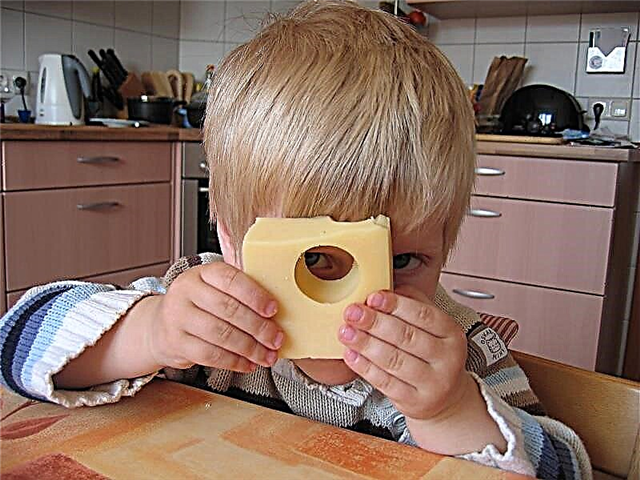Harmonious development and mastering of skills are important components of the psychological and physical condition of the baby. Proper rest is essential for this, so parents need to know exactly how much a baby should sleep at 10 months. It should be borne in mind that during this time period, the duration of wakefulness in the daytime period increases significantly. At night, sleep becomes complete, without frequent interruptions.

Development harmony depends on adherence to the daily routine
Sleep features and problems
At the age of 10 months, the child begins to actively explore the world around him. The load on the body increases. A special feature is the fact that rest at this age is fully formed: sleep phases are clearly divided into 2 (falling asleep and deep sleep). Problems can arise with the process of falling asleep - the baby gets a lot of emotions that he cannot cope with quickly. That is why, before falling asleep, he is moody, cries or turns and turns.
Important! There are no uniform norms for the period of wakefulness and rest. You should adhere to the regime that was formed earlier.
How much should a child sleep
Quality sleep for a baby at 10 months is gradually decreasing in duration. Now it takes about 10 hours to fully recover from the previous 11-12. Sleep becomes deeper, similar to full-fledged, like in adults.
Most of the hours of sleep are at night. During the day, rest is carried out twice: a dream in the afternoon and during a walk. The child begins to be awake actively. He is interested in toys, various books and drawings. At this age, some children begin to walk with confidence. The period between sleep is filled with interesting events that contribute to active and comprehensive development. The total sleep time reaches 13-15 hours a day, most of which falls at night - 10-12 hours.
Approximate daily routine
The main component in terms of the psychological and physical development of a child at ten months is the waking time. All these figures for sleep duration are approximate, as each child develops individually.
If there is no medical indication, then the mother should not worry when there are deviations from the values of 1-2 hours. Approximate regimen of a child who is ten months old:
- rise - 7.00-9.00 - breakfast, hygiene procedures, morning exercises, games (the norm is also getting up at 11.00);
- 11.00-11.30 - second meal;
- 11.30-13.00-13.30 - first nap (it can take place outside during a walk);
- 13.00-13.30-15.00 - a period of active wakefulness;
- 15.00-15.30 - lunch;
- 15.30-17.00 - quiet games, developing activities;
- 17.00-18.30 - second dream in the afternoon;
- 18.30-22.00 - wakefulness (includes games, communication, walking in the street) and dinner.
At 22.00, activities are held to prepare for a night's sleep (massage, bathing, quiet games and communication).

Comfort guarantees quality rest
Signals that the baby wants to sleep
Each baby knows how to give certain signals that allow parents to understand that he is tired and wants to sleep. The main signs of fatigue are:
- movements slow down, become smooth, indistinct;
- concentration of attention decreases;
- yawning appears and intensifies;
- the baby begins to actively rub his eyes.
Also, tearfulness is added to the characteristic signals of fatigue. Then you can't take time to lay down, as overwork will soon come. It leads to a long period of falling asleep and reduces the time of good rest, which the child's body needs, in particular its nervous system.
How to help a baby fall asleep
Parents are advised to know how much a baby should sleep at 10 months in order to stay on track. It is also required to learn techniques that will help the baby with the process of falling asleep. Doctors recommend following these rules:
- gradually reduce active games before rest (20-30 minutes before laying down);
- ventilate the room during the day;
- humidify the air if the temperature in the room exceeds 22 degrees;
- cleaning to get rid of irritants (dust and small particles that lead to itching, coughing, sneezing);
- you need to choose comfortable clothes for sleeping, do not wrap the child in several layers to prevent overheating.
In order for the baby to be able to sleep fully, you need to calm him down, create a comfortable environment around. It is important to carry out a special ritual that will allow the baby to understand that it is time to sleep.
Sample actions on the part of the parents:
- dim the light intensity in the room;
- stroking the back of the baby;
- sing an affectionate song.
At 10 months old, you can give your child a favorite toy in bed, which he can also "put to bed." Water treatments are carried out before bed. They effectively relieve muscle tension, calm the nervous system, and reduce anxiety.

Sleeping assistance does not require significant parental effort
How long should I sleep
Observing the regime is useful for full and harmonious development. The doctor will tell you how much a ten-month-old baby should sleep at the appointment. The approximate parameters will be as follows:
- total daytime sleep - 3 hours;
- sleep periods during the day - 2;
- the duration of each rest is 1.5-2 hours;
- night sleep - 10-12 hours.
The norm is a rest in the daytime for 1 hour.
Important! When organizing a sleep and wakefulness regimen, it must be borne in mind that prolonged rest (more than 3 hours during the day at a time and 13 hours at night) leads to behavioral disruptions and worsens the baby's well-being.
After 10 months of age, the baby's sleep at night becomes longer not only in terms of the total time, but also in terms of the duration of sleep without awakening. Parents do not have to get up to him at night. Often it is not required to feed him until morning, as the child is fast asleep and does not ask for attention. At the same time, a breastfed baby may require breast up to 4 times at night - support feedings remain.
Note. Some parents face problems such as poor sleep in the morning hours (3-5 a.m.). It also manifests itself in the fact that the baby remains hanging on the chest for 1-2 hours without a break.
Babies on artificial feeding can wake up 1-2 times at night, but many also have a sound sleep without waking up. If a child at 10 months old does not sleep well at night, often wakes up and cannot fall asleep again on his own, you should pay attention to the microclimate in the room. Discomfort can be caused by:
- stuffiness in summer (if there is strong heating, in winter);
- cold;
- the presence of allergens in the room (dust, pollen, animal hair);
- uncomfortable bed (mattress);
- bright light;
- noise in the room.
Physical illness or illness negatively affects the quality of rest.
Why the baby does not fit to sleep
Parents know how many times a day a 10 month old baby should sleep soundly, but they often face the problem of protest. The baby shows with all his might that he wants to stay awake, play, learn about the world around him. The reasons for the violation of the regime can be as follows:
- emotional over-excitement (new impressions, guests, new acquaintances);
- physical fatigue - the child does not know how to control his feelings at this age, therefore, perceives muscle fatigue as a reason for continuing wakefulness;
- illness - for example, a cold delivers uncomfortable sensations that interfere with the process of falling asleep.
It is necessary to maintain the necessary level and quality of rest. During the day, you need to sleep 1-2 times from 60 minutes at a time, at night - at least 10 hours. Pediatricians, including Dr. Komarovsky, recommend showing the baby an example of behavior and adherence to the regime. You need to try to go to bed at the same time with the child (especially at night) or keep quiet so that the baby understands that it is time to rest. If the schedule has already been established and respected, it should not be violated, as it will be difficult to re-establish it.

Characteristic behavior signals the need for rest
The best solution for organizing a healthy and satisfying sleep would be to create an individual sleeping space for the child. If the crib is in the same room as the parents, then you can separate it, for example, with a canopy.
When the day is intense and interesting, quiet games and activities should be chosen in the evening. After water procedures, the rest becomes full, strong, awakenings are not observed. The desire to sleep is expressed by characteristic behavior, which cannot be ignored. If the baby begins to yawn intensively and rub his eyes, you should immediately lay him down. After a while, he will develop the habit of falling asleep immediately. During the waking period, it is recommended to walk 1-2 times, play, communicate - all this contributes to the fact that the child gradually loads his nervous system, which reacts with the appearance of fatigue. Relaxing massages, bathing before a night's rest, and reducing activity can quickly end protests.
Attention! To organize a sound and high-quality sleep, it is recommended to carry out daily evening walks (40-60 minutes each).
When a child sleeps a lot and deeply for 10 months, his strength and energy are restored. Normally, the rest is up to 15 hours a day. I spend 1 hour for a nap in the afternoon and outdoors during a walk. Discomfort interferes with the quality of sleep, so you need to make sure that the mattress in the crib is of medium firmness, there are no toys or foreign objects that can distract and make the baby struggle with sleep. The pillow does not need to be used. Leisure clothing should be comfortable. If you follow all these recommendations, there will be no problems with the regime.



